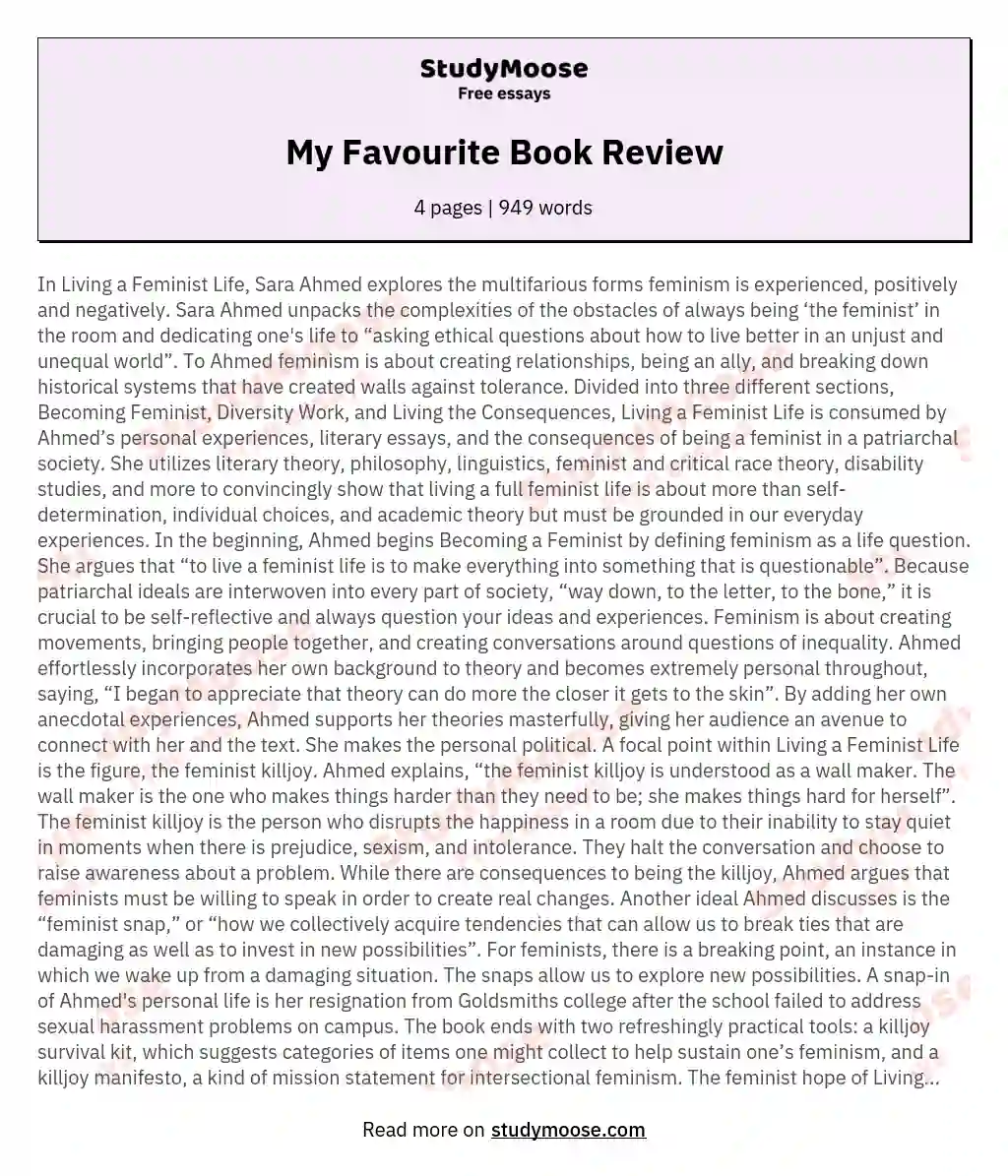Books possess an extraordinary ability to transport us to realms of imagination that often remain untouched in our daily lives. The act of writing a book review, particularly of your favourite tome, is akin to unearthing a buried treasure—a chance to share the profundity and nuances that stirred your soul. It not only allows you to articulate your enthusiasm but also promises a shift in perspective for potential readers eager to explore the literary landscape you’ve come to love.
When embarking on this literary endeavour, the first essential step is to immerse yourself thoroughly in the book. This phase, inherently introspective, invites you to dissect the narrative fabric woven by the author. Consider the plot, the characters, and the overarching themes, as these elements form the crux of your analysis. An insightful review transcends mere summary; it titillates curiosity while framing complex ideas that echo long after the final page is turned.
Select Your Focal Point
Every book you adore possesses unique attributes. These might be character arcs that resonate with your personal experiences or atmospheric descriptions that capture the essence of a bygone era. Pinpoint what captivates you. Ask yourself: what makes this book worthy of reverence? Is it the author’s deft storytelling? Perhaps the intricate layering of the plot, or the eloquence imbued in the prose? Delve deep, as your enthusiasm is the infectious spark that can ignite a similar passion in your readers.
Engage with the Characters
Characters often act as the conduits through which readers experience the narrative. Their journeys, struggles, and triumphs are what keep us riveted to the pages. Contemplate how well-developed these characters are. Do they exhibit growth? Do they evoke empathy or disdain? For instance, an anti-hero who teeters on the edge of morality can create thrilling tension. Unpack their motivations and flaws, allowing your audience a glimpse into the human condition. This depth of analysis not only enriches your review but also invites readers to reflect on their own connections with these characters.
Explore Themes and Motifs
Thematic exploration is pivotal in revealing the layers embedded in the narrative. Does the book grapple with concepts like love, loss, identity, or the struggle against societal norms? Highlighting these elements not only enriches your review but also serves to elevate the reader’s understanding. For instance, a novel that deftly intertwines historical events with personal stories can provide profound insights into the human experience, provoking thought long after the book is closed. By explaining how the author navigates these themes, you can entice potential readers to embark on the journey themselves.
Analyze the Writing Style
An author’s style significantly influences how a story is perceived. Ponder the lexicon employed: is it rich and lyrical, terse and impactful, or perhaps somewhere in between? Discuss how the style shapes the tone—does it evoke a sense of nostalgia, urgency, or melancholy? Furthermore, examine the structural choices: the pacing, the narrative voice, and the point of view. All these aspects meld together to create a unique reading experience. Your analysis can highlight a few exquisite passages that exemplify the author’s craftsmanship, arousing curiosity about how such words can affect the reader’s emotional state.
Personal Reflection
This is perhaps the most crucial component of your review—the personal touch. Share how this book resonates with you on a deeper level. Did it alter your perspective on life? Move you to tears? Inspire you to take action? This experiential narrative not only humanizes your review but also forges a connection with your readers. Authenticity is magnetic. When readers can sense your genuine sentiments, they are more likely to be intrigued and compelled to explore the book themselves.
Conclude with Impact
Your conclusion should encapsulate your insights whilst leaving readers with something to ponder. Summarize the core reasons why this book is a must-read, encouraging exploration rather than dictating certainty. A well-crafted conclusion not only reinforces your enthusiasm but also piques the reader’s curiosity about the journey that awaits them within the pages. This is your chance to leave them with lingering questions or profound thoughts, setting the stage for their own adventure.
Final Thoughts
Writing a book review of your favourite literary work is not merely an exercise in articulation; it is a heartfelt invitation to others to witness the world through your lens. As you weave your narrative, remember that your words hold the power to influence. Through thoughtful analysis and personal reflection, you not only share your affection for the book but also ignite the embers of curiosity in your readers. They may just find themselves heading to the bookstore or the library, eager to unlock the insights concealed within the pages you’ve celebrated. Embrace this opportunity as not just a review but as a bridge connecting souls through the love of literature.
